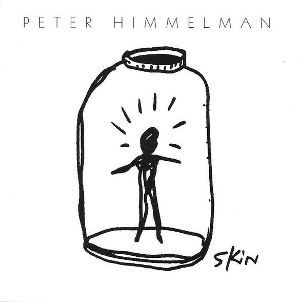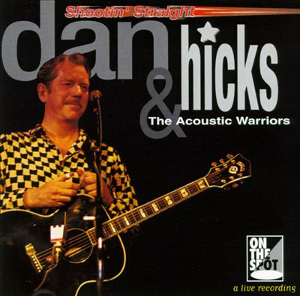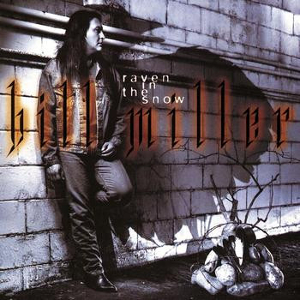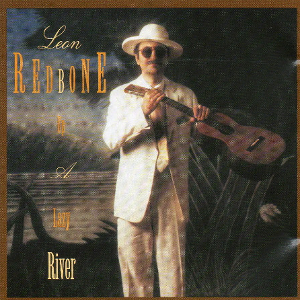
Joseph Kim Mitchell is a Canadian rock musician. He was the lead singer and guitarist for the band Max Webster before going on to a solo career. His 1984 single, "Go for Soda", was his only charted song on the US Billboard Hot 100, reaching number 86. Several other singles such as "Patio Lanterns", "Rock and Roll Duty", and "Rockland Wonderland", reached the top 20 in Canada.

Barenaked Ladies (BNL) is a Canadian rock band formed in 1988 in the Toronto suburb of Scarborough, Ontario. The band developed a following in Canada, with their self-titled 1991 cassette becoming the first independent release to be certified gold in Canada. They reached mainstream success in Canada when their debut with Reprise Records, Gordon, featuring the singles "If I Had $1000000" and "Brian Wilson", was released in 1992. The band's popularity subsequently spread into the US, beginning with versions of "Brian Wilson" and "The Old Apartment" off their 1996 live album Rock Spectacle, followed by their fourth studio album Stunt, their breakout success in 1998. The album featured their highest-charting hit, "One Week", as well as "It's All Been Done" and "Call and Answer". Their fifth album, Maroon, featuring the lead single "Pinch Me", also charted highly. In the 2010s the band became well-known for creating and performing the theme song for the sitcom The Big Bang Theory.
Wesley Stace is an English folk/pop singer-songwriter and author who has used the stage name John Wesley Harding. Under his legal name, he has written four novels. He is also an occasional university teacher and the curator of Wesley Stace's Cabinet of Wonders.
The Brothers Creeggan was a Canadian alternative rock/jazz band composed of Jim Creeggan, Andy Creeggan and Ian McLauchlan (drums). The group has released four albums: The Brothers Creeggan (1993), The Brothers Creeggan II (1997), Trunks (2000) and Sleepyhead (2002).

Flight of the Cosmic Hippo is the second album by Béla Fleck and the Flecktones, released in 1991. It reached number 1 on the Billboard Top Contemporary Jazz Albums chart. The album title came from an audience member who suggested "Flight of the Codeine Hippo"; the band changed "codeine" to "cosmic".

Here Comes the Groom is an album by folk-rock singer John Wesley Harding, released in 1990. Harding called the backing band the Good Liars. It included Pete Thomas and Bruce Thomas of the Attractions. Not surprisingly, Here Comes the Groom has a feel similar to classic Elvis Costello. Harding's articulate and biting vocal delivery, also reminiscent of Costello, retains a good dark sense of humor.

Hanky Panky is the fifth studio album by English band The The, released on 14 February 1995. It consists of cover versions of country singer Hank Williams' songs. It reached No. 28 on the UK Albums Chart. Matt Johnson intended Hanky Panky to be the first of many albums he would record covering the work of iconic musicians. Johnson provided the liner notes to Alone and Forsaken, a compilation of Williams demos that was also released in 1995.

The Name Above the Title is an album by the folk-rock singer John Wesley Harding, released in 1991. It was his third successive Frank Capra-inspired album title, coming from the director's autobiography.

Forgery is an album by the American band Monks of Doom, released in 1992. It was the band's first album to be distributed by a major label, and their second after the breakup of the members' former band, Camper Van Beethoven. Monks of Doom supported the album with a North American tour.

What About Regret, stylized as (What About Regret), is an album by the American musician Kate Jacobs, released in 1995. Jacobs promoted the album with two tours, one with a full band and one with just a bass player.

Cakewalk is an album by the American musical duo House of Freaks, released in 1991. It was the duo's first album for a major label.

Pretty & Twisted is the debut album by the American band Pretty & Twisted, released in 1995. It was the band's only album.

Skin is an album by the American musician Peter Himmelman, released in 1994. It is a concept album about a man named Ted who dies and is spiritually reborn; Himmelman chose to think of it as a song cycle.

Shootin' Straight is a live album by the American musician Dan Hicks, released in 1994. Hicks was backed by the Acoustic Warriors. It was Hicks's first major album since 1978.

Between the 1 and the 9 is the debut album by the American musician Patti Rothberg, released in 1996. Compared to Alanis Morissette and other female singers of the mid-1990s, Rothberg disdained the "T. F. S., tortured female syndrome" label. The album title refers to the New York City subway stop where Rothberg used to busk. The album artwork was painted by Rothberg.

War and Peace is the second album by the American musician Syd Straw, released in 1996. Straw had been without a record label for four years prior to signing with Capricorn Records. The album title jokingly refers to War and Peace's almost 60-minute running time. The first single was "Love, and the Lack of It".

Swept Away is an album by the American musician Jesse Colin Young, released in 1994. A mostly acoustic album, it followed the more rock-oriented Makin' It Real. Its cover photo depicts a naked Young and his guitar.

Raven in the Snow is an album by the Native American musician Bill Miller, released in 1995. The first two singles were "River of Time" and the title track. Miller supported the album by opening shows for the BoDeans and then Tish Hinojosa.

Burning Questions is an album by the English musician Graham Parker, released in 1992. It was his only album for Capitol Records. Backed by his band, the Small Clubs, Parker supported the album with a North American tour.

Up a Lazy River is an album by the American musician Leon Redbone, released in 1992. Redbone supported the album with a North American tour. The first single, "Play Gypsy Play", was a minor radio hit in France. "Bittersweet Waltz" first appeared on an episode of the television show Life Goes On.


















